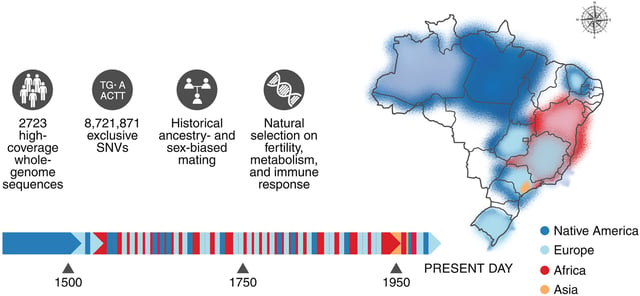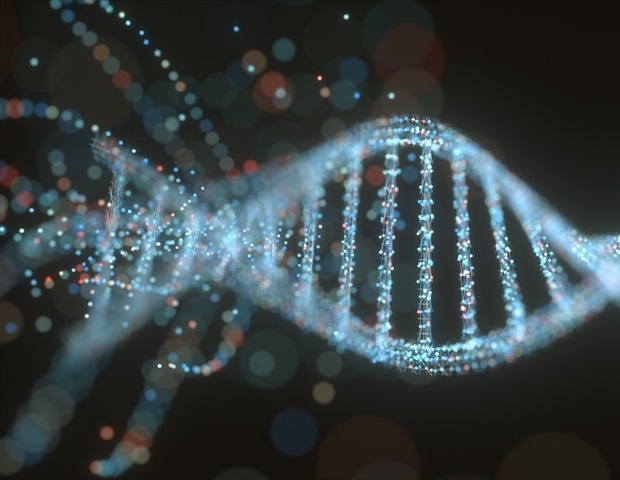Overview
- Researchers analyzed 2,723 high-coverage genomes from Brazil's diverse population, uncovering over 8 million novel genetic variants, including nearly 37,000 with potential health implications.
- The study highlights Brazil’s genetic admixture, with an average genome composition of 60% European, 27% African, and 13% Native American ancestry, reshaping previous demographic assumptions.
- Asymmetrical mating patterns during colonial times are evident, with most Y-chromosome lineages tracing to European origins and mitochondrial DNA predominantly African or Native American.
- Variants linked to fertility, immunity, and metabolism show evidence of rapid natural selection over the past five centuries, influenced by pathogen exposure and demographic shifts.
- This genomic database addresses the underrepresentation of indigenous and African ancestry in global datasets, offering a critical resource for precision medicine and public health strategies.

